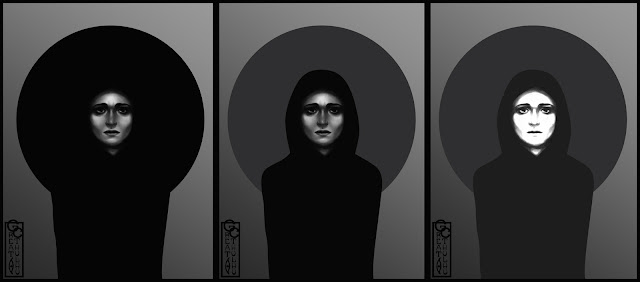Vladimir Mukhin: 'We Will Build the Future of Russian Cuisine'
VLADIMIR MUKHIN: 'WE WILL BUILD THE FUTURE OF RUSSIAN CUISINE'
A chat with Vladimir Mukhin, IKRA international gastronomic festival 2018 ambassador, to find out just why Russian gastronomy is so exciting right now.
The second IKRA international gastronomic festival sponsored by S.Pellegrino and Acqua Panna will take place in Sochi, Russia, from 31 January to 4 February 2018. Designed to promote Russian gastronomy and gastro-tourism, the event will feature a host of big name Russian and international chefs who will be gathering at the Black Sea resort for a series of workshops, dinners and masterclasses focusing on Russia’s culinary heritage and new culinary landscape. See the line-up and find out how to buy tickets here.
The chef ambassador for the event is none than other than Vladimir Mukhin, who is at the forefront of the new wave of Russian chefs looking proudly to the country’s culinary traditions to craft a contemporary cuisine using local products, and whose Moscow restaurant White Rabbit currently sits at number 23 on The World’s 50 Best Restaurants list.
We caught up with Mukhin ahead of the event to find out just why Russian gastronomy is so exciting right now.
How important is an event like IKRA to Russian gastronomy?
IKRA is not a gastronomic festival; it's a platform on which we will build the future of Russian gastronomy. Books, collaborations, professional communities – talented people want to share their experiences, their energy. IKRA will help us to develop gastro-tourism – it highlights regions rich with food, recipes, and traditions. We can show the world what no one has seen. IKRA expands.
How greatly does the cuisine differ from region to region?
Very. In France each region has its own face, and we have regions that match France in size. I’ve made a gastronomic map of Russia. My goal is not just to come up with a menu for White Rabbit; I'm curious to find unique products in each region and I’m fascinated by the variety of recipes. How does Tula gingerbread differ from that in Vyazemsky, or Moscow kalach [a type of bread] from Kolomna kalach? How did mincemeat get into our country? It’s necessary for our generation to understand. The thread is almost lost. We need to find answers and pass them to the next generation, before it’s too late.
How then would you/can you define Russian cuisine today?
There are no ‘old’ and no ‘new’ Russian cuisine. It’s evolving. White Rabbit evolves, but it is built on the foundation of tradition. Russian cuisine lives in the stove, in pickles and sauerkraut that you can buy in any market, and grandmothers’ recipes. Russian cuisine has a heart – where is it? God only knows. Our goal is to keep digging. [At the restaurant] we use new technologies; build laboratories and libraries, travel and study. But White Rabbit is not only I – it is a huge team of people who care. And each brings something. It is a strong movement, which will popularise Russian cuisine around the world.
Do you think there is a gap between outside knowledge of Russian cuisine and the reality? How could that gap be overcome?
People, who come to us from abroad, are shocked by what's happening here. The experts fromGault&Millau, who came to Russia this year, were surprised by the amount of good restaurants in Moscow. We don't eat pancakes every day; we have no bears. We have developed and are an interesting country. My goal is to tell everyone about it.
Are Russian diners’ tastes changing? What trends are you seeing right now?
People began to travel, to discover new things. First, we copied Europe, but, fortunately, it quickly became boring and we returned to the roots. We started making Russian dishes with local products – a new wave of chefs has helped the return to our traditions. For the guests of the Moscow restaurants, it's really interesting.
The embargo on Western produce is set to continue through 2018 – what does it mean for Russian chefs in their daily work?
The embargo is already part of our history – weird, in my opinion, a political move. I don't want to brag, but it helped us to apply to our products, our traditions. If it hadn't happened, we would have been preparing Caesar salad. This is an opportunity for farmers to rise and to revive Russian products, and for chefs to address these products and begin to cook them.
Tell us about some of the ingredients that you enjoy working with that people might not be aware of outside of Russia?
Black bread, pike caviar, Black Sea rapana, herring milt, pickled garlic, horseradish (sauce), tkemali [sour plum sauce], adjika [a spicy Georgian dip], baked milk, cottage cheese from boiled milk, black sea fish (grey mullet, red mullet, turbot, all of which are found nowhere else), lake fish – perch, tench, bear, grouse, berries, pickled mushrooms.
Which other chefs/restaurants are exciting you in Russia right now?
Serial young guys who are developing: the restaurant Severyane and George Trojan; Gastrobar, Tehnikum and Vitaly Istomin; Dmitry Shershakov, Dmitry Zotov, and Sergey Eroshenko.
What’s next for you? Any plans you’d like to share?
To continue to develop, to share knowledge with our guests, and to build a platform from IKRA and develop gastro tourism. This job is very exciting!
What IKRA Gastronomic Festival
Where Sochi, Russia
When 31 January – 4 February 2018
Tickets and programme ikrafest.com
http://bit.ly/2FghSAz


Comments
Post a Comment